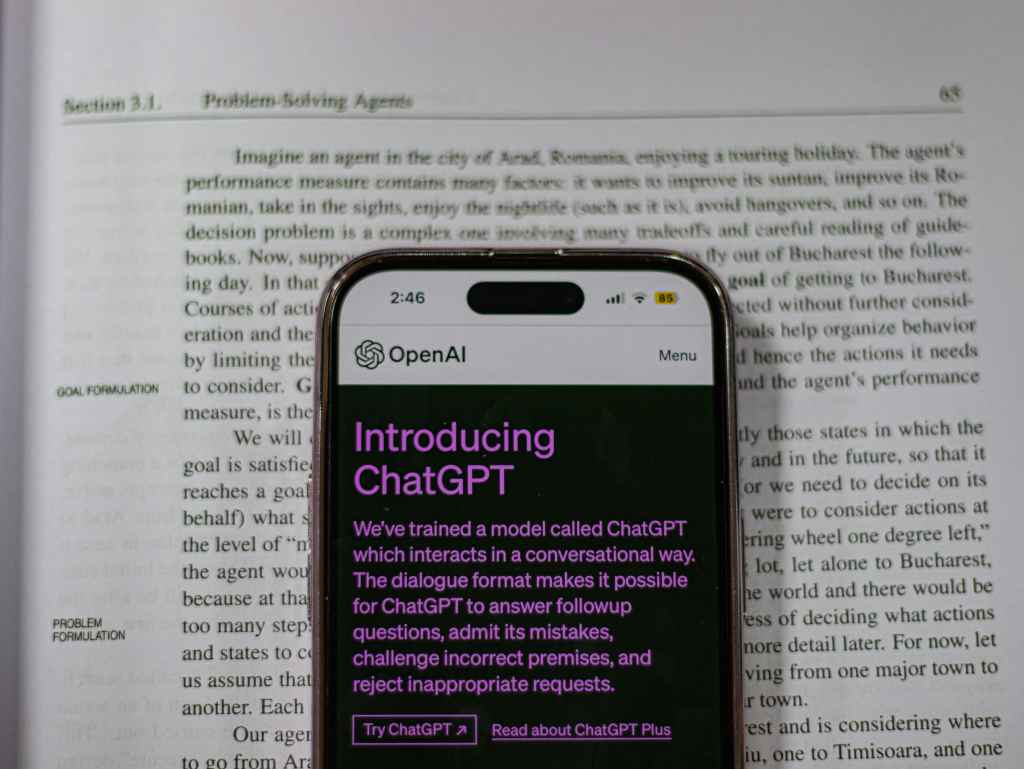AI’s Literary Ghostwriters: Navigating the Rise of AI-Generated Books

The publishing world is abuzz, and not just with the usual excitement of new releases. A quiet revolution, or perhaps a subtle invasion, is underway. Artificial intelligence is no longer just a tool for research or editing; it’s becoming a prolific author in its own right. We’re seeing a surge of books, especially in genres like sports autobiographies, that are entirely generated by AI, mimicking the style and substance of genuine athlete memoirs. This trend has publishers raising red flags, warning about the potential for readers to be misled and the very real risk of devaluing the hard work of human authors. It’s a complex issue that touches on everything from author integrity and reader trust to the fundamental definition of authorship in our increasingly digital age.
The AI Author Boom: What’s Really Happening?
It’s hard to ignore the sheer volume of new content hitting the market. AI can churn out text at a speed and scale that human authors simply can’t match. This has opened up new avenues for content creation, but it’s also created a bit of a Wild West scenario, especially on platforms like Amazon’s Kindle Direct Publishing (KDP). KDP, being a major player in self-publishing, has become a primary launchpad for these AI-generated works. While this democratizes the publishing process, making it easier for anyone to share their stories, it also presents a massive challenge for content moderation and quality control. The ease of uploading means that AI-written books can quickly reach a global audience, making it crucial for platforms and publishers to get a handle on this new reality.
AI in Sports Autobiographies: Imitation or Inspiration?
One of the most striking examples of this trend is in sports autobiographies. Publishers are genuinely concerned about how AI is being used to replicate the authentic voice and lived experiences that readers expect from these personal narratives. AI models can learn the typical structure, the anecdotal style, and even the emotional tone of a seasoned athlete’s memoir. The problem is, while the writing might be technically proficient, it lacks the genuine lived experience. When you pick up a sports autobiography, you’re looking for a direct connection to the athlete’s journey, their struggles, their triumphs. An AI can simulate that, but it can’t *feel* it. This disconnect can leave readers feeling disappointed and, frankly, a bit duped, eroding the trust that’s so vital between authors and their audience.
The Fading Echo of Authorial Voice
What truly makes a book resonate is the author’s voice – that unique blend of personal experience, perspective, linguistic style, and emotional intelligence. It’s what makes a story feel intimate and relatable. AI can learn to mimic these elements, but it can’t truly possess them. It can create a convincing imitation, but it lacks the depth and nuance that comes from a human life. When AI-generated books flood the market, especially in genres that thrive on personal connection, they risk drowning out authentic voices. It becomes harder for genuine authors, who pour their hearts and souls into their work, to stand out when they’re competing with content that can be produced almost instantaneously and on a massive scale. It’s a tough environment for creativity, that’s for sure.
The Economic Ripple Effect: Authors and Publishers Under Pressure. Find out more about AI generated books sports autobiographies.
Let’s talk about the money side of things, because it’s a big one. The ability of AI to generate content cheaply and quickly poses a significant economic threat to both authors and publishers. If readers can’t tell the difference between a human-authored book and an AI-generated one, or if they simply don’t care, the market for authentic works could shrink considerably. This translates to fewer sales, lower royalty payments for authors, and a potential downturn in the publishing industry’s profitability. Publishers invest a lot of time, money, and effort into discovering, nurturing, and promoting authors. If that investment is constantly undermined by low-cost AI imitations, it could stifle innovation and make them less willing to take chances on new literary talent. It’s a tricky balance to strike.
Copyright Conundrums: Who Owns the AI’s Words?
Then there are the legal headaches. The rise of AI-generated content throws a massive wrench into our existing intellectual property and copyright laws. Who actually owns the copyright to a book created by an AI? Is it the AI developer? The person who typed in the prompt? Or does copyright even apply in the same way? Compounding this is the fact that AI models are trained on vast amounts of existing text, much of which is copyrighted. This raises serious questions about potential copyright infringement if the AI’s output is too similar to its training data. Publishers and authors are desperately seeking clarity on these legal gray areas, as our current copyright framework simply wasn’t built with AI authorship in mind. Clear guidelines and legal precedents are desperately needed to protect creators and ensure a fair playing field.
Amazon KDP: The Digital Publishing Gatekeeper
Amazon’s Kindle Direct Publishing (KDP) platform is right in the thick of this debate. As a dominant force in the self-publishing world, its policies and practices are under a microscope. Publishers are pushing for more robust measures to identify and flag AI-generated books. While KDP does have guidelines, the sheer volume of content uploaded daily makes thorough manual review incredibly difficult. A key question on everyone’s mind is whether KDP should mandate disclosure of AI use in book creation. Developing effective content moderation strategies that can accurately distinguish between AI-assisted writing and purely AI-generated content is a monumental technical and ethical challenge. The goal, of course, is to maintain the platform’s integrity while still allowing for legitimate uses of AI in the creative process.
The Arms Race: Detecting AI-Generated Content
The race is on to develop sophisticated tools and methods for detecting AI-generated content. This means using AI itself to spot patterns, linguistic quirks, and stylistic markers that are typical of machine-generated text. Experts are working on solutions that can analyze written content for signs of artificial generation, like unusual sentence structures, repetitive phrasing, or a noticeable lack of genuine emotional depth. However, AI models are constantly evolving, making detection an ongoing battle. As AI gets better at mimicking human writing, the detection methods must also improve. It’s a continuous cycle of innovation and adaptation, requiring ongoing research and development to stay ahead of the curve.. Find out more about publishers warning AI books guide.
Amazon’s Stance: What’s Next?
The entire publishing industry is watching Amazon’s response closely. While the company hasn’t yet implemented sweeping policy changes specifically targeting AI-generated books, it’s clear they’re aware of the issue and are exploring potential solutions. Amazon’s commitment to its authors and readers means they’ll likely need to address the growing presence of AI-generated content to maintain trust and the quality of their offerings. Looking ahead, it’s probable that Amazon will introduce clearer disclosure requirements for AI-assisted or AI-generated works, enhance their detection capabilities, or even create new categories or labeling systems to differentiate between human-authored and AI-generated content. Whatever Amazon decides to do will have a significant impact on the future of self-publishing and the broader literary landscape.
The Bigger Picture: AI’s Literary Footprint
The rise of AI-generated books forces us to fundamentally re-examine what it means to be an author and what constitutes creativity. If AI can craft compelling narratives, does that diminish the role of the human author? Or can AI be seen as a tool, much like a word processor or research software, that enhances human creativity? We’re likely to see a spectrum of AI integration, from AI acting as a co-author or assistant to AI being the sole creator. Defining these roles will be crucial for the future of literature. The emphasis might shift towards the uniquely human elements of curation, editing, and the conceptualization that AI, at least for now, can’t replicate.
Reader Trust in the Age of AI Authors
The potential for AI-generated content to mislead readers raises serious questions about consumer trust and how our reading habits might change. If readers become accustomed to encountering AI-generated books, will they become less discerning about the source of the content? Or will there be an increased demand for clearly labeled, human-authored works? Transparency in content creation is likely to become a major factor in reader purchasing decisions. Publishers and platforms that prioritize authenticity and clear labeling may gain a competitive edge by building greater trust with their audiences. The long-term impact on how we consume literature will depend on how effectively the industry navigates this new terrain.
Genre Evolution: AI’s Creative Canvas
The accessibility and scalability of AI could lead to the emergence of entirely new genres or the transformation of existing ones. For example, AI might be used to generate personalized stories tailored to individual reader preferences, or to create vast libraries of niche content that would be economically unfeasible for human authors to produce. Genres that rely heavily on factual reporting or predictable narrative structures might be more susceptible to AI imitation. Conversely, genres that emphasize unique voice, emotional complexity, and groundbreaking artistic expression may become even more valued as distinctly human endeavors. The literary landscape is poised to become more diverse, with AI playing a role in expanding the possibilities of storytelling.. Find out more about Amazon KDP AI content tips.
The Ethical Compass: AI and Content Creation
Beyond the immediate concerns of imitation and economic impact, there are broader ethical considerations surrounding AI content creation. These include issues of transparency, accountability, and the potential for AI to perpetuate biases present in its training data. Ensuring that AI is used responsibly and ethically in the creation of literary works is paramount. This involves developing guidelines for AI development and deployment that prioritize fairness, accuracy, and the avoidance of harmful stereotypes. The conversation about AI in publishing isn’t just about technology; it’s also about the values we want to uphold in our cultural and creative industries. It’s about making sure we’re not just creating content, but creating it responsibly.
Charting the Course: Navigating the AI Publishing Frontier
Addressing the challenges posed by AI-generated books requires a concerted effort. It’s going to take close collaboration between publishers, authors, and technology companies like Amazon. Sharing insights into detection methods, discussing policy frameworks, and working together to establish industry standards will be absolutely essential. This collaborative approach can help ensure that technological advancements are harnessed responsibly and that the integrity of the publishing ecosystem is preserved. Open dialogue and a willingness to adapt will be key to finding effective solutions that benefit everyone involved.
The Power of Disclosure: Clarity for Consumers
One of the most immediate and practical steps we can take is the development of clear and enforceable disclosure policies. Requiring authors to clearly indicate when AI has been used in the creation of their books, whether as a tool or as the primary author, would provide much-needed transparency for readers. These policies need to be specific enough to cover various levels of AI involvement and should be consistently applied across all publishing platforms. Such transparency will empower readers to make informed choices and will help maintain a level playing field for human authors. It’s about giving readers the information they need to decide what they want to support.
Investing in the Future: AI Detection Technologies. Find out more about sports autobiography imitation AI strategies.
Continued investment in and development of AI detection technologies is absolutely crucial. As AI models become more sophisticated, so too must the tools used to identify their output. This might involve a combination of algorithmic analysis, linguistic pattern recognition, and even human oversight. The publishing industry needs to stay abreast of these technological advancements to effectively combat the misuse of AI in content creation. Supporting research and development in this area will be vital for safeguarding the authenticity of published works. Think of it as an ongoing arms race, and we need to keep our weapons sharp.
Empowering Readers: Media Literacy Matters
Beyond technological solutions, educating readers about the existence and implications of AI-generated content is incredibly important. Promoting media literacy skills will help individuals critically evaluate the sources and authenticity of the information and stories they consume. By raising awareness, readers can become more discerning consumers of literature, actively seeking out and supporting human-authored works. This educational effort can foster a greater appreciation for the value of human creativity and the unique insights that authors bring to their craft. It’s about equipping readers with the tools to navigate this new landscape.
Conclusion: The Evolving Narrative of Publishing
The publishing industry is in a period of significant transformation, driven in large part by the rapid advancements in artificial intelligence. The emergence of AI-generated books, particularly those mimicking sports autobiographies, presents both opportunities and profound challenges. Publishers are rightly concerned about the potential for deception, the erosion of authorial voice, and the economic repercussions for human creators. The role of platforms like Amazon Kindle Direct Publishing is central to this discussion, as they are the primary conduits for this new wave of content. It’s a rapidly changing landscape, and we’re all trying to figure out the best way forward.
A Call for Transparency and Responsible Innovation
Moving forward, a commitment to transparency and responsible innovation is paramount. Clear disclosure policies, enhanced AI detection technologies, and ongoing collaboration between stakeholders will be essential in navigating this complex terrain. By addressing these issues proactively, the publishing industry can work towards a future where AI serves as a tool to augment human creativity rather than undermine it, ensuring that authentic voices continue to be heard and valued. The ultimate goal is to maintain the integrity of literature and foster a trusted environment for readers and creators alike. It’s about embracing the future while protecting the essence of what makes literature so special.



